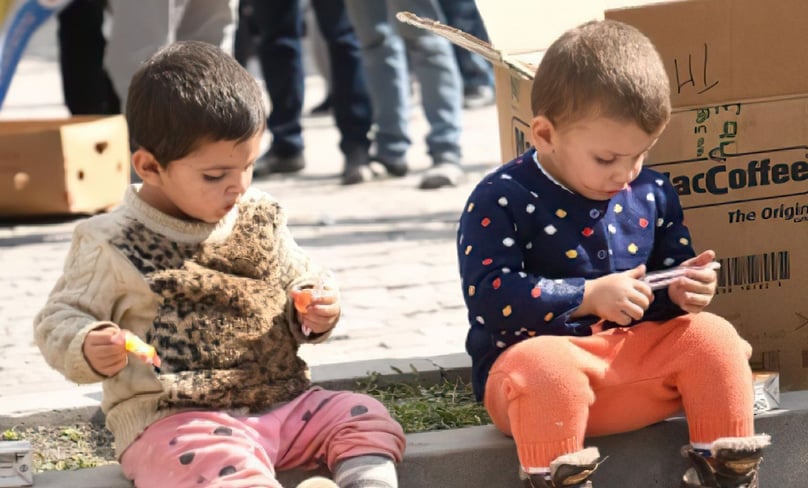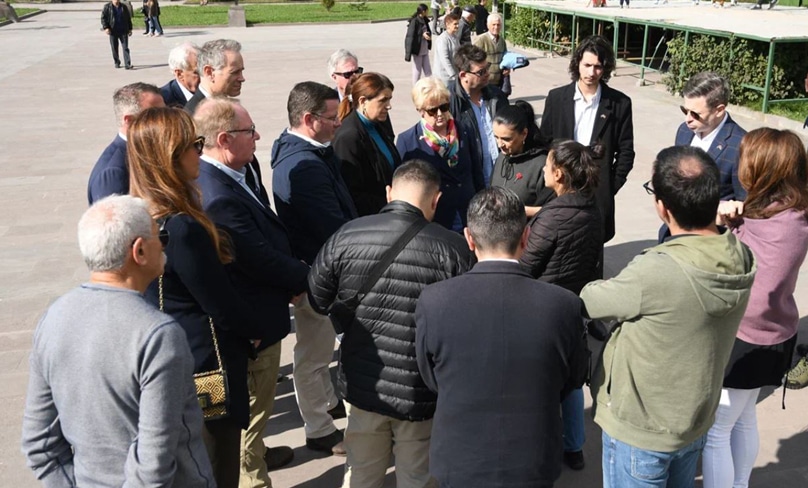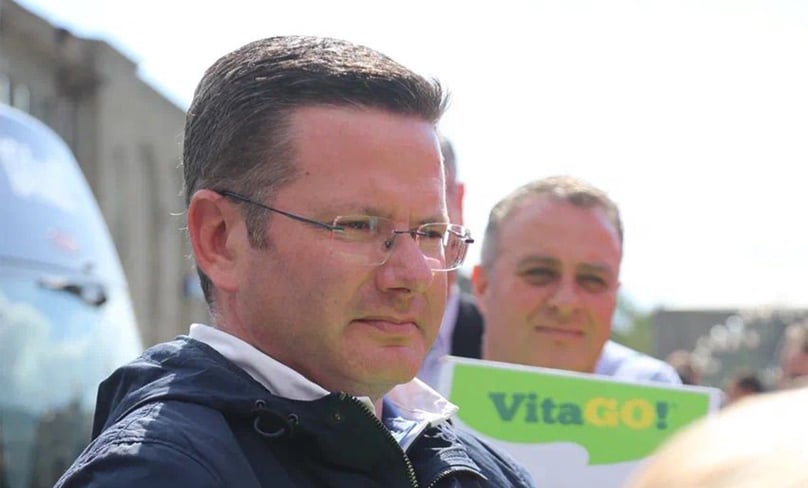
Amid the unexpected horror of seeing a mass of starving, shell-shocked refugees pour into an Armenian border town, it was the children’s toys piled high on top of people’s cars that broke Susan Carter’s heart.
That and the children themselves, “beautiful and well-behaved” but malnourished.
The Liberal member of the New South Wales legislative council was part of a group of Australian MPs—coincidentally, all Catholic—who were plunged into the middle of the world’s latest refugee crisis while on a scheduled visit.
Thousands of ethnic Armenians from the Nagorno-Karabakh region of Azerbaijan, occupied in a flash offensive by Azerbaijani military forces on 19 September, began pouring across the border into Armenia in long queues of vehicles.
More than 40,000 people from the contested territory, about a third of its population, reportedly left within the first few days, with numbers still growing.
The situation threatens to escalate into a full-scale war and humanitarian crisis, with Russia obliged to defend Armenia because of treaty obligations, and NATO member Turkey supporting rival Azerbaijan.
“People are saying they would be killed, or worse, if they stayed,” Ms Carter told The Catholic Weekly by phone on 27 September after visiting an impromptu refugee processing centre and camp in Goris, an Armenian town close to the “Lachin corridor.”
It is the only route across the border, but has been blockaded for months by the Azerbaijani military, to protests from the UN and aid agencies.
“The loss that we witnessed and the terrible situation they are now in is just overwhelming,” Ms Carter said.
“Some of the kids we saw were little ones with clothes almost hanging off them. They were hungry, and they’d been hungry for a very long time.
“Children are arriving with pneumonia and other diseases, many medical problems that have to be addressed.”
Goris had been suffering from low supplies of food, medicines and fuel due to a blockade of the main road out since December.
Shortly after Azerbaijani forces took over the region a ceasefire was put in place but residents immediately began fleeing in droves, cramming as many people and belongings into their cars as possible.
Shocked and audibly distressed, Ms Carter said the constant stream arriving into the town, and the bewilderment of the arrivals was overwhelming, and it was the young children, elderly and other vulnerable people she felt for the most.
“It’s heartbreaking and it was story after story,” she said.

“I saw a minivan with big bags of kindling and a child’s teddy bear on the top, I saw hatchbacks with people’s possessions bundled and attached with large sticky tape onto the back of them.
“One carried a washing machine wrapped up in a carpet.”
“What sticks in my mind is how scared would you have to be to pack up everything you own and leave like that? One person told us, ‘We have left our ancestral graves, and where our family has lived for a thousand years’.”
Armenia is the world’s most ancient Christian nation; the Australian politicians met the leader of the Armenian Apostolic Church, Catholicos Karekin II, while on their tour.
Ms Carter said in a church they visited in Goris, St Gregory the Illuminator, a monk stood and gave blessings to all who wanted, tears streaming down his face.
She said she didn’t understand all of the geopolitics involved, but that the plight she witnessed was a case of innocent people suffering when leaders chose “brute force” over diplomacy.
“In essence you have people who were trying to live peacefully in what they see is traditionally their land, their country, their identity, who have been blockaded for months against all the international agreements before this,” she said.
The Member for Oatley Mark Coure said the crisis was deepening “hour by hour” and warned many more thousands would be displaced and the refugees’ situation worsen without immediate attention from the rest of the world.
He said the group’s visit to Armenia’s spiritual leader was “very helpful” and they will ask the Australian Federal government and the UN to provide immediate emergency funding.
“We’re praying for those in Goris, both in Armenia and in the Republic, and for the victims,” he said.
“People are arriving exhausted and malnourished, we need foreign aid in Goris and medical help.”
The two were in a cross-party delegation of parliamentarians to Armenia organised by the Armenian National Committee of Australia.

Led by Labor MP Hugh McDermott and Liberal MP Tim James the group coincidentally arrived for a week-long visit as the humanitarian tragedy unfolded.
They met with various government officials and visited a number of sites before spending most of the day on 27 September in Goris.
There they spoke to local leaders, the Red Cross and other volunteers and refugees and with the need obviously pressing, helped to unload food and other aid supplies that arrived from across Armenia.
Many families had been separated, there was a notable absence of the region’s men, there were claims of “hit lists”, denial of safe passage to refugees and civilian torture, Ms Carter said.
“They certainly believe that it’s ethnic cleansing and given the history of the [Armenian] genocide, they fear this is sort of the ‘genocide mark two,’” she said.
One woman told the Australians that her husband had died in the breakaway region’s most recent war and that her son was lost after a massive fuel explosion in its capital, Khankendi, on 25 September.
“She’s completely alone in the world and now she’s left the country because she has nothing. She has no family. She has no home. She has literally what she could carry on her back,” Ms Carter said.
“There’s so little petrol that people are putting methylated spirits in their car, which they know will destroy their car, but they are doing anything they can to get out.
“This should never have been allowed to happen, but it has happened and what’s important now is that we respond both immediately and in the longer term.
“Armenia has held out its arms to these people but they won’t be able to do that very long by themselves.
“We need to support them and in very practical ways and try and make sure that this never happens again.”
Support the Armenian Relief Society of Australia appeal at ars1910.org or call 0482 555 991.
